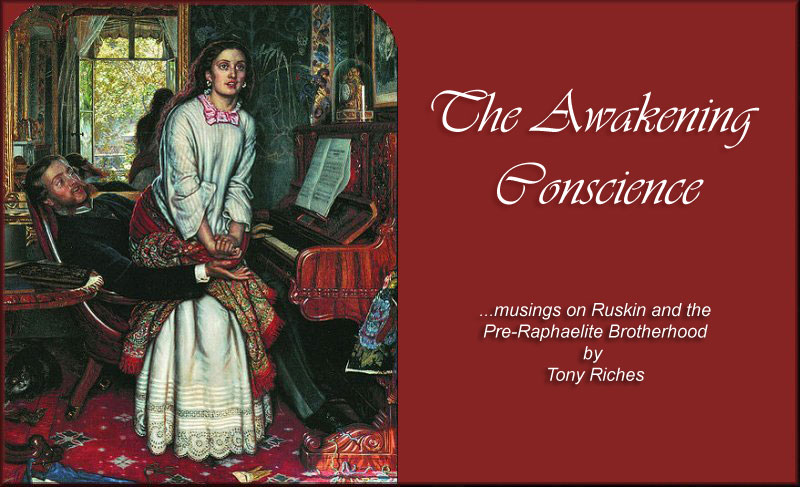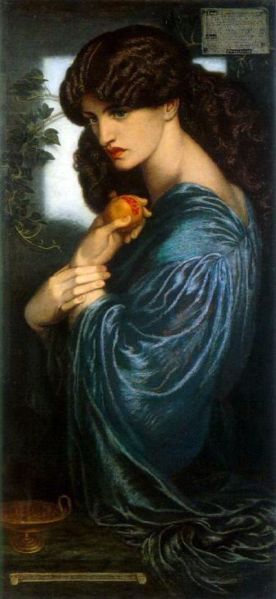Dante Gabriel Rossetti painted this version of Proserpine in 1874 when he was aged 46. His favourite model Jane Morris posed for Proserpine, who in classical mythology was kidnapped by Pluto, the god of the underworld, who took her as a wife. The pomegranate in her hand is a symbol of her captivity.
Rossetti and Morris at Kelmscott Manor
Jane was unhappy in her marriage to Rossetti’s friend William Morris so Rossetti fantasised about her as a captive goddess. The date of this painting is significant as it was in 1874 that Morris had enough of Rossetti’s interest in his wife.
Kelmscott Manor is a farmhouse near the Thames that William Morris used as a summer home. He signed a joint lease with Rossetti in the summer of 1871 but sent him away from Kelmscott in the July of 1874 and never allowed him to return.
Kelmscott Manor is a farmhouse near the Thames that William Morris used as a summer home. He signed a joint lease with Rossetti in the summer of 1871 but sent him away from Kelmscott in the July of 1874 and never allowed him to return.
Mary Shellley’s Play Proserpine
Rossetti would have known of Mary Shellley’s play Proserpine which she wrote in 1820 while the Shelleys were living in Italy
I will away, and on the highest top
Of snowy Etna, kindle two clear flames.
Night shall not hide her from my anxious search,
No moment will I rest, or sleep, or pause
Till she returns, until I clasp again
My only loved one, my lost Proserpine
Rossetti's description of Proserpine
In 1888 Rossetti wrote "She is represented in a gloomy corridor of her palace, with the fatal fruit in her hand. As she passes, a gleam strikes on the wall behind her from some inlet suddenly opened, and admitting for a moment the sight of the upper world; and she glances furtively towards it, immersed in thought. The incense-burner stands beside her as the attribute of a goddess. The ivy branch in the background may be taken as a symbol of clinging memory"


